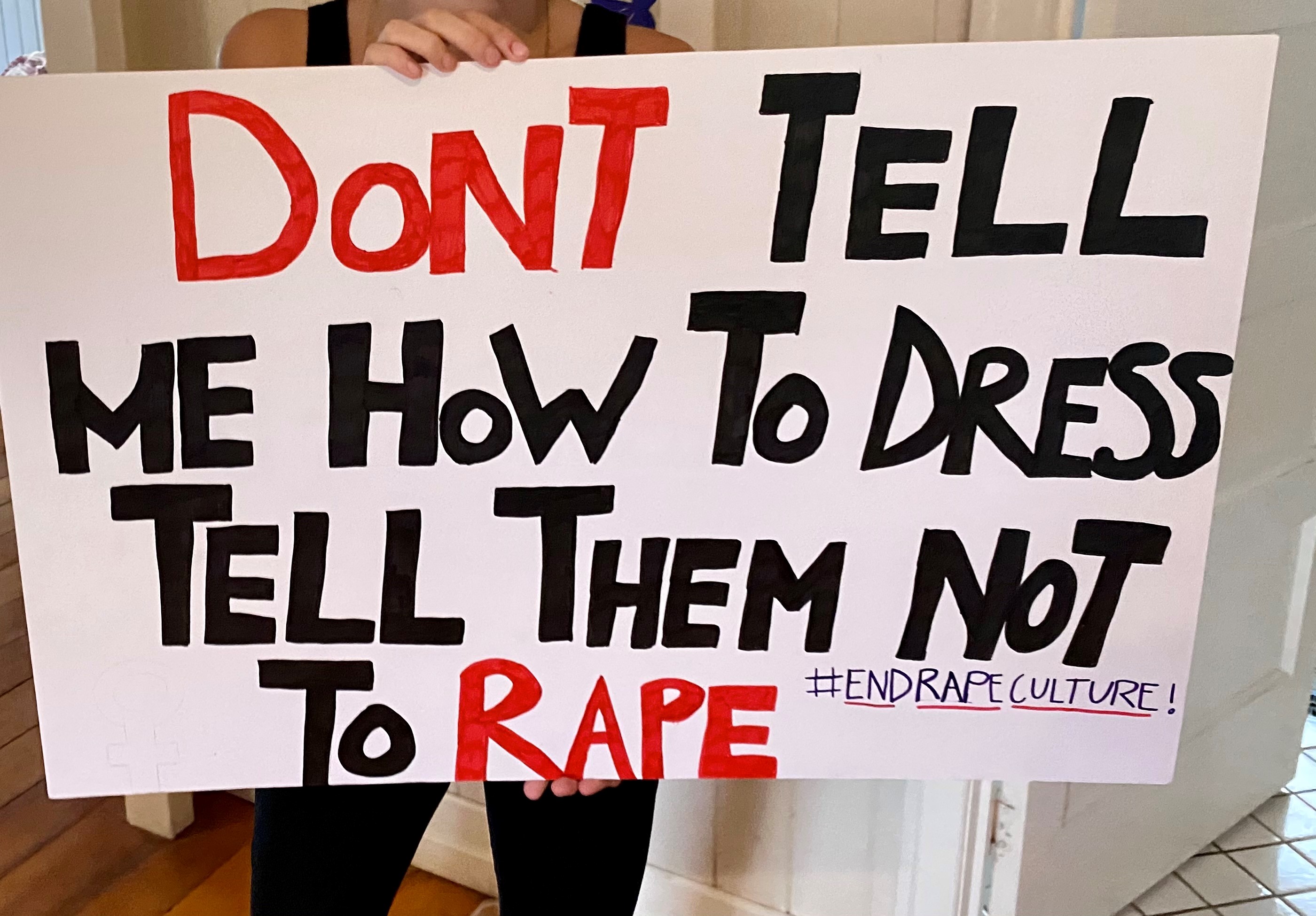
QUT criminologist Professor Kerry Carrington says the time is now for practical action to eradicate gender-based violence and sexual assault against women and men.
- Survey of domestic and family violence workers in UK, Canada & Australia shows support for women's police stations
- Survey report delivered today to the UN Nations Commission on The Status of Women, NGO sessions
- A multi-disciplinary ‘one-stop shop’ for DV and sexual violence victims endorsed by survey participants
Speaking on ABC The Drum program on Tuesday, Professor Carrington said two million Australians aged over 15 experienced sexual assault in their lifetime.
“There are 200,000 reported assaults a year. We know that’s 1 in 6 women and 1 in 25 men,” Professor Carrington said.
“Anyone who claims to have been raped is slut-shamed, not believed, immediately called a lying cow.

“I was absolutely horrified by the commentary in the press.”
Professor Carrington, a long-time researcher in gender equality and violence prevention, has proposed a trial of women’s police stations in Australia after an extensive three-year, ARC funded study into the key features of Argentina’s women and family police stations.
As part of her advocacy of practical real-world measures to stem the statistic of one woman a week dying at the hands of an intimate partner, Professor Carrington has twice addressed the United Nations Commission on The Status of Women, NGO sessions, in March 2019 and earlier today (March 24).
Professor Carrington spoke (via Zoom) at the UN session together with leading researchers in Canada and the UK who presented results from their survey of domestic and family violence workers (including police) on what could be learnt from Argentina’s highly successful women’s police stations and implemented in their respective countries.
The research team includes Professor Myrna Dawson, from the University of Guelph, Canada and Professor Elaine Arnull from the University of Wolverhampton, UK Assistant Chief Constable of Bedfordshire Police and UK lead of the National Police Chief’s Council Serious Violence Dr Jackie Sebire is also part of the international research team.
Professor Carrington said Dr Sebire had actively promoted the survey to UK Police.
“I was thrilled to hear UK’s top police officer responsible for leading change in how police respond to domestic and sexual violence express her enthusiasm for the survey findings,” Professor Carrington said.
“Dr Sebire is enthusiastic about the survey findings and keen to use them to re-imagine the policing of sexual and domestic violence in the UK.”
The international survey of domestic and sexual violence sectors in UK, Australia and Canada asked which of the following 12 aspects of the Argentinian model could improve the way policing operated in these countries:
- Designed to receive victims
- Provide childcare
- Multi-disciplinary teams
- Work from a gender perspective
- Provide emergency support
- Operate from suburban houses
- Staffed predominantly by female police officers
- Prevention work in community
- Collaborate with local agencies
- Work with victims to break cycle
- Work with offenders to break cycle
- Interview rooms for victims
“Overall Australia showed support for 11 of the 12 aspects, with the responses varying between 56 and 86 per cent; Canada’s DFV workers showed stronger support for 11 of the aspects, with their responses varying between 66 to 89 per cent in favour.
“Currently, the UK shows support for 9 of the aspects, with responses varying between 58 to 82 per cent.
“The greatest area of agreement across the three countries was the aspect ‘Provide emergency support to victims of violence’.
“Having a multi-disciplinary ‘one-stop shop’ for DV and sexual violence victims that includes social workers, police, psychologists, and lawyers is a key take-away for improving the police response to domestic and sexual violence endorsed by 89 per cent of workers in Canada, 86 per cent in Australia and 74 per cent in UK.
“Another key finding shared across all three countries was to “Allow female victims of male violence to choose a female police officer to receive their complaint”, endorsed by 92 per cent in Canada, 86 per cent in UK and 78 per cent in Australia."
A UK domestic and family violence worker’s survey response said the most important way ‘to address gender-based violence is creating a safe space for women to disclose/receive support and tailoring support to individuals,’.
A Canadian DFV worker welcomed women’s police stations for their visibility, and commitment demonstrated by the police station would be a phenomenal contribution to addressing gender-based violence at local levels’.
Among Indigenous Canadian DRV workers’ response was that ‘Each Nation should decide for themselves. For my community, to prevent racial profiling only Indigenous police officers should serve and protect our small community’ and ‘Indigenous women in distress need to have a place where they can go and be received by women who have an understanding and appreciation for their traditional and emotional needs.’.
Professor Carrington said Argentina had established its first women’s police station in 1988.
“The results speak for themselves: research from Brazil, which initiated women’s police stations in 1985, found a 50 per cent drop in the female homicide rate for women aged 15 to 24 in cities and for all women by 17 per cent in areas where women’s police stations were found.
“It is not acceptable any longer to stand by wringing our hands while one woman a week is murdered by her intimate partner in Australia when we have a model that has proven its worth for stemming violence against women. With all our inquiries and talk we have not been able to increase the safety of women in their own homes.”
Professor Carrington said the women’s police stations have a warm welcoming look and are embedded in the suburbs in Argentina.
“Consequently, women have greater access to justice and appropriate support than they do in male-dominated general police stations,” Professor Carrington.
“Women’s police stations work with both victims and perpetrators to break the cycle of violence. They have constant outreach to the community, joining in festivals and holidays to educate and pass out contact details.
“Not surprisingly, the women police are accepted and welcomed as part of the community.”
The presentation “Re-Imagining the policing of gender-based violence: what the world can learn from women’s police stations” delivered at the United Nations 65th Commission on the Status of Women, NGO sessions in New York.
QUT Media contacts:
Niki Widdowson, 07 3138 2999 or n.widdowson@qut.edu.au
After hours: Rose Trapnell, 0407 585 901, media@qut.edu.au.


